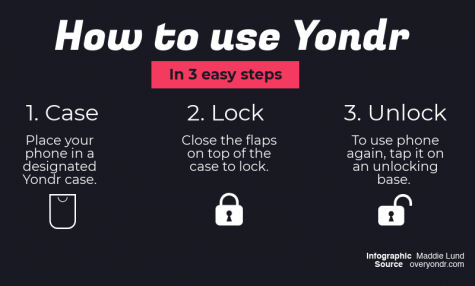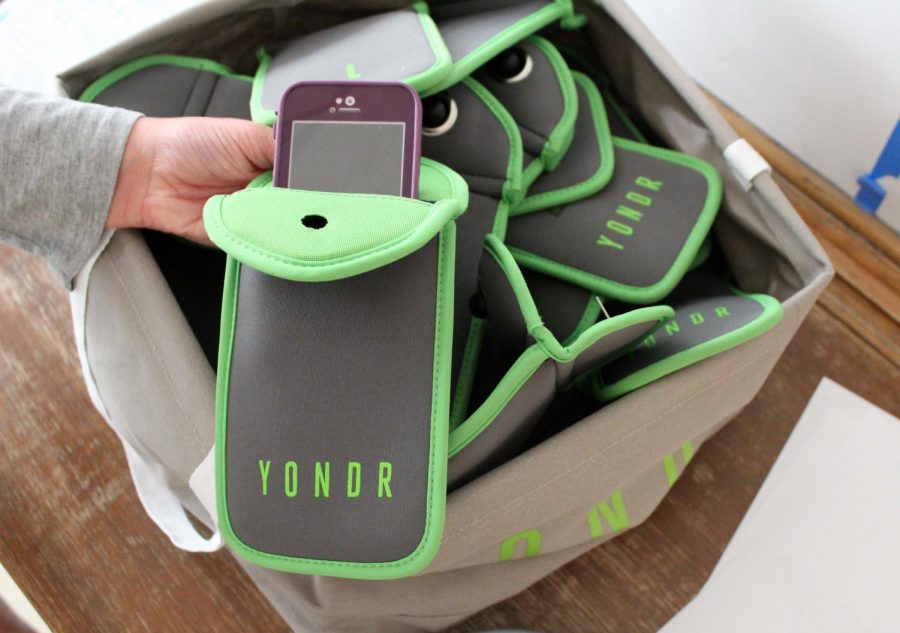Pouches halt mobile distraction
Yondr used in math class as test run
May 29, 2018
As Anson Opara, statistics and algebra teacher, tries to teach his math classes during the day, he notices that many students are looking down, focused on their phone rather than what is on the whiteboard.
“I feel like many kids are distracted by cell phones, and we don’t really have a system-wide policy at school that really helps for each individual class,” Opara said.
Opara said he wanted to find a solution that could help with the distraction of phones and other electronics.
“I tried to get something that would not be punitive but try to show that this is hampering your learning and hampering your grade,” Opara said.
According to Opara, Yondr makes fabric pouches that are used to place phones into, where they can remain, until they want to be used again. They were first used in concerts and other event settings to help people focus on the main events.
“They’re just little pouches that you can put your phone in and be in control in and have possession of it, and they magnetically lock, and that’s all it is,” Opara said. “The whole idea is to make places cell phone-free places, so it started in concerts and things like that to make people more engaged while they’re doing things so they aren’t distracted by their phones.”
According to Senior Gavin Shoger, adding Yondr into the classroom was not effective in changing the dynamic of the class or make the phone problem better.
“While (Yondr) was introduced, I didn’t feel that it was ever implemented. It was given as an option, one that nobody ever chose to take, so that didn’t really change anything,” Shoger said.
Math Department Head Eric Ahlquist said he fully supports the idea of Yondr in the classroom and wants to incorporate it into his own classes. 
“I love the idea, and I want to do it next year because we don’t let kids smoke in school, we don’t let kids do heroine in school, we don’t let kids do all kinds of addicting things in school, yet we let them use their phones in school,” Ahlquist said.
Shoger said he feels students need to be held accountable for their own electronics, and they should be the ones to decide if Yondr is the solution.
“I think it’s everyone’s personal responsibility to take care of (their phones), and if (Yondr) is something they need they should use that, and if it’s not something they need they shouldn’t be forced to,” Shoger said.
Opara said Yondr has helped him find nonverbal ways to communicate with students to not use their phones, and he has plans to implement it further into the class.
“Next year I have plans to just basically make it mandatory for every kid to use it the whole time,” Opara said. “It still has given me an option where I don’t have to stop teaching and continue to ask ‘please get off your phone’ or ‘please put your phone away,’ and now I can just hand them the pouch and it’s a nonverbal way of saying ‘dude you need to lock it up.’”




